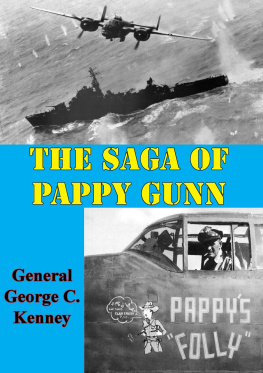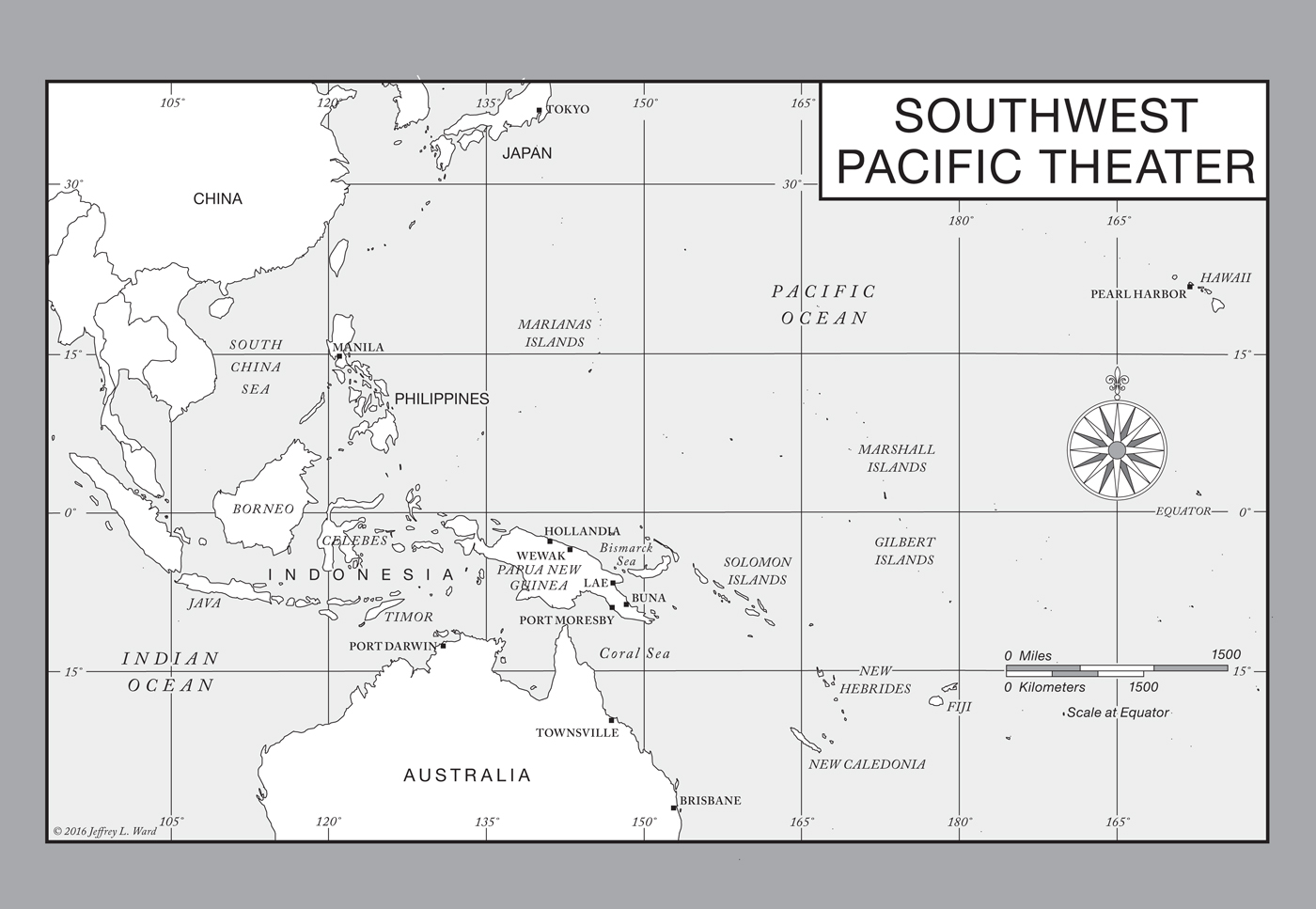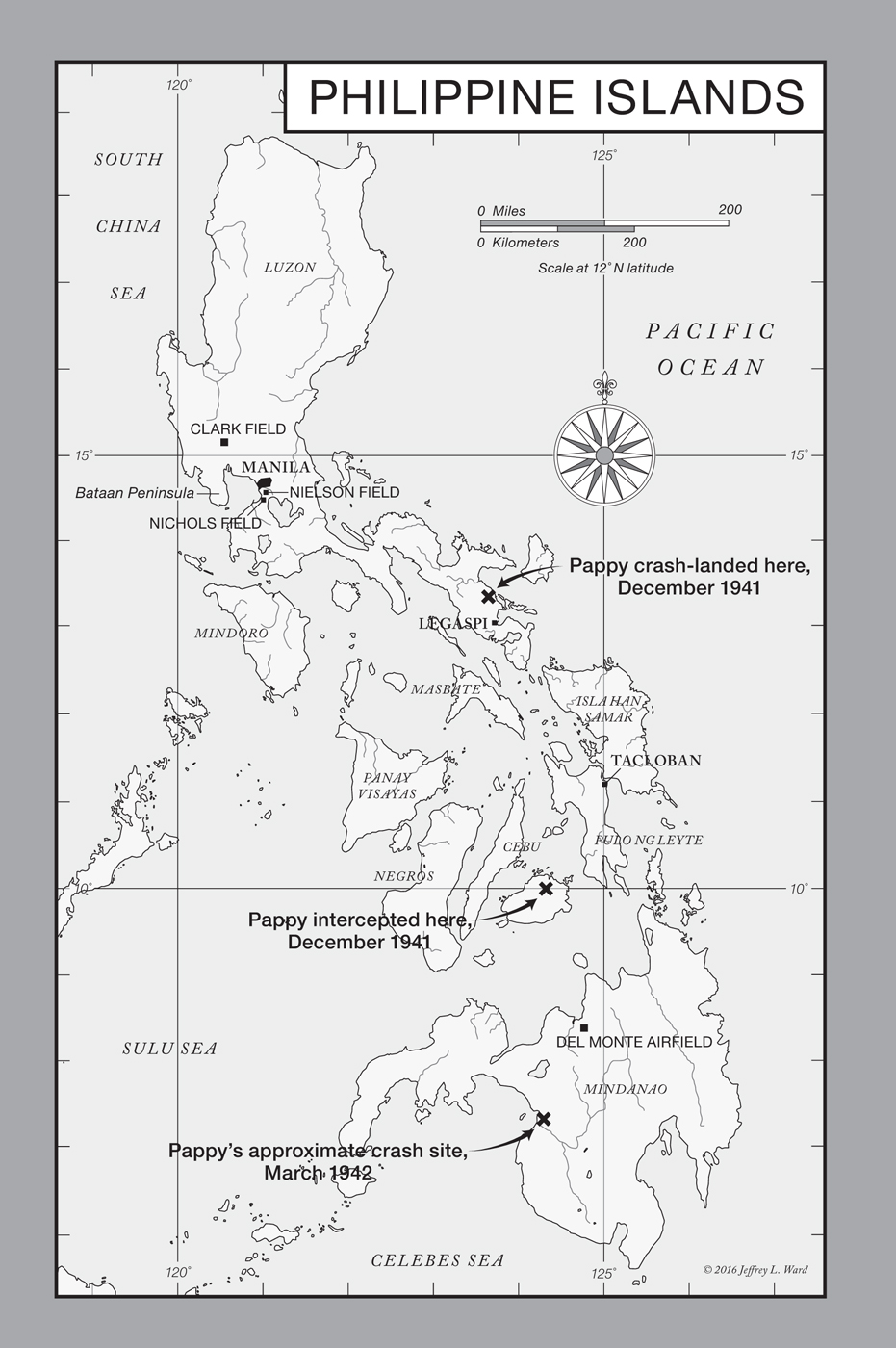Thank you for buying this ebook, published by HachetteDigital.
To receive special offers, bonus content, and news about ourlatest ebooks and apps, sign up for our newsletters.
March 3, 1943
Thirty miles off the Northern New Guinea Coast
T he sharks fed, and men screamed. Those who could fought back, kicking and punching in desperation as the great whites and hammerheads reared up from the depths, their jaws snapping off limbs or tearing men in half. The dead lay floating around the living, blood so thick on the whitecapped swells that those who bore witness to the scene swore the Bismarck Sea turned red that day.
A lucky few found refuge in battered lifeboats, or had scrabbled atop hunks of debris left over from a dozen shipwrecks. Others floated in life belts, treading water among the corpses and wreckage. Thousands had already died. The wounded cried for help they knew would not come.
A sound rose in the distance. At first, it was weak, a mere buzzing barely heard over the chaos on the waves.
The broken men fearfully turned their eyes skyward. The Americans had returned. A few readied waterlogged bolt action rifles or light machine guns theyd carried over the sides of their sinking ships. Such weapons offered a pitiful defense to the juggernaut fast approaching, but they were all they had left. Their air force had been vanquished. Their navy had either been destroyed or driven off. Now, these men bobbed in the Bismarck Sea and knew there would be no miracle to save them.
The sounds of onrushing engines grew deafening, but the straining men could see no aircraft. In the distance, a few appeared thousands of feet above them. Those made no difference to the men in the water, and they were not the ones whose engines filled their ears. The real threat remained unseen.
The water churned around them as if pummeled by rain from a tropical storm. Lifeboats were torn apart, the debris raked by the bullets from scores of heavy machine guns. Their thunderous reports reached the survivors ears a moment later. Dark, predatory shadows sped over them. The American bombers came in so low and so fast they couldnt be seen until they were practically overhead.
They were new weapons, engineered for a new type of air warfare that had caught the men in the water completely by surprise. There had been no effective defense against them, and their ships were transformed into bullet-riddled conflagrations in mere minutes. In retrospect, the lucky ones had died aboard ship.
The growling engines receded, but only for a moment. They would return for another pass.
Nine thousand feet above the death and misery in the water, the middle-aged pilot, a father of four and a devoted husband who had engineered their fate, watched the scene below through eyes once full of mirth and now devoid of mercy.
All the while, the sharks continued to feed.
December 1941
Manila, Philippines
I n a handmade four poster bed, beneath a white, homespun quilt, Paul Irvin P.I. Gunn lay beside his wife of twenty years. Pollys almond-colored hair, always meticulously braided, adorned her pillow. They slept close, paired as lovers whose fire for each other never ebbed. Other couples came and went. These two had thrived despite everything a hard and dangerous life threw at them.
On P.I.s nightstand rested a standard U.S. Navy BUSHIPS Hamilton wristwatch, a legacy of a career now four years in his rearview mirror, but still worn every day. Slim, solidly built, and scuffed from countless adventures, the timepiece matched P.I.s own physical traits perfectly. Over the years, both man and watch survived everything from raging ocean storms to plane crashes and combat missions over Nicaragua in underpowered biplanes. The watch had become part of the man long ago. The tiny second hand spun out another minute until the watch showed precisely four thirty.
In the bed, P.I.s gray-blue eyes shot open. He flung back the quilt and sat up like an uncoiling spring. For him, there was no slow transition between sleep and consciousness. Like the flip of a light switch, he went from dormant to full power every morning at exactly 0430. He never needed an alarm clock; his own internal one was better than anything even the Swiss could produce.
His bare feet found the polished hardwood floor, which the familys servants buffed with coconut husks they strapped to their feet. That weekly process was a source of fascination for P.I. and Pollys two young boys.
Hit the deck! P.I. called out, his voice booming through the house. A moment later, he padded into the bathroom to put in his teeth. Long ago, while pioneering the use of float planes on Navy warships, hed landed his aircraft beside a cruiser and taxied up alongside it. A crane swung out over the side and hooked his aircraft with a cable. As the crew winched the craft aboard, a huge swell slammed broadside into the vessel, which caused it to list sharply, before rolling back on an even keel. The sudden movement flung P.I.s plane like a pendulumdirectly into the cruisers side. The force of the impact threw P.I. face-first into the instrument panel so hard it permanently damaged his teeth. Later, he had a dentist pull them all and make him a set of dentures.












